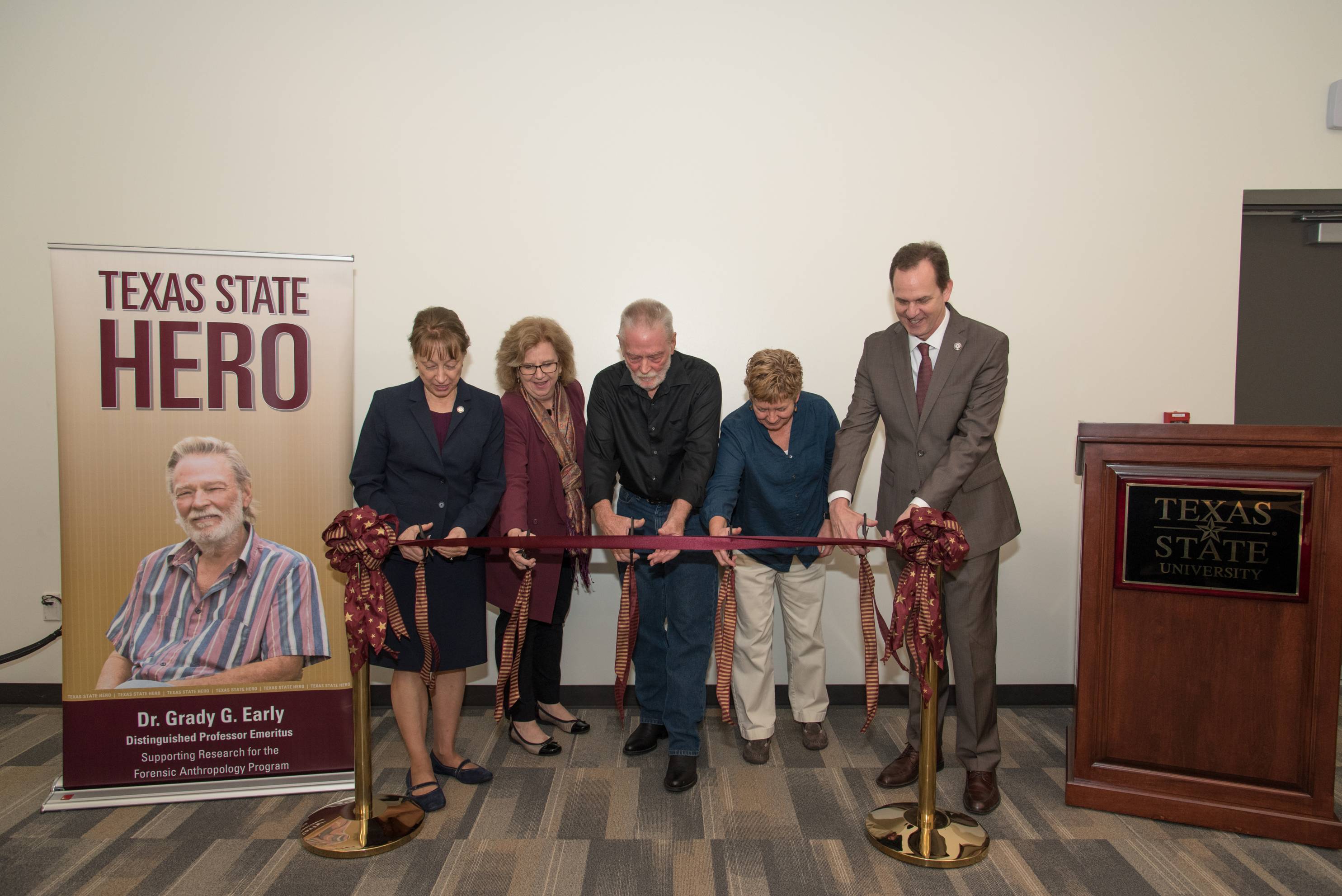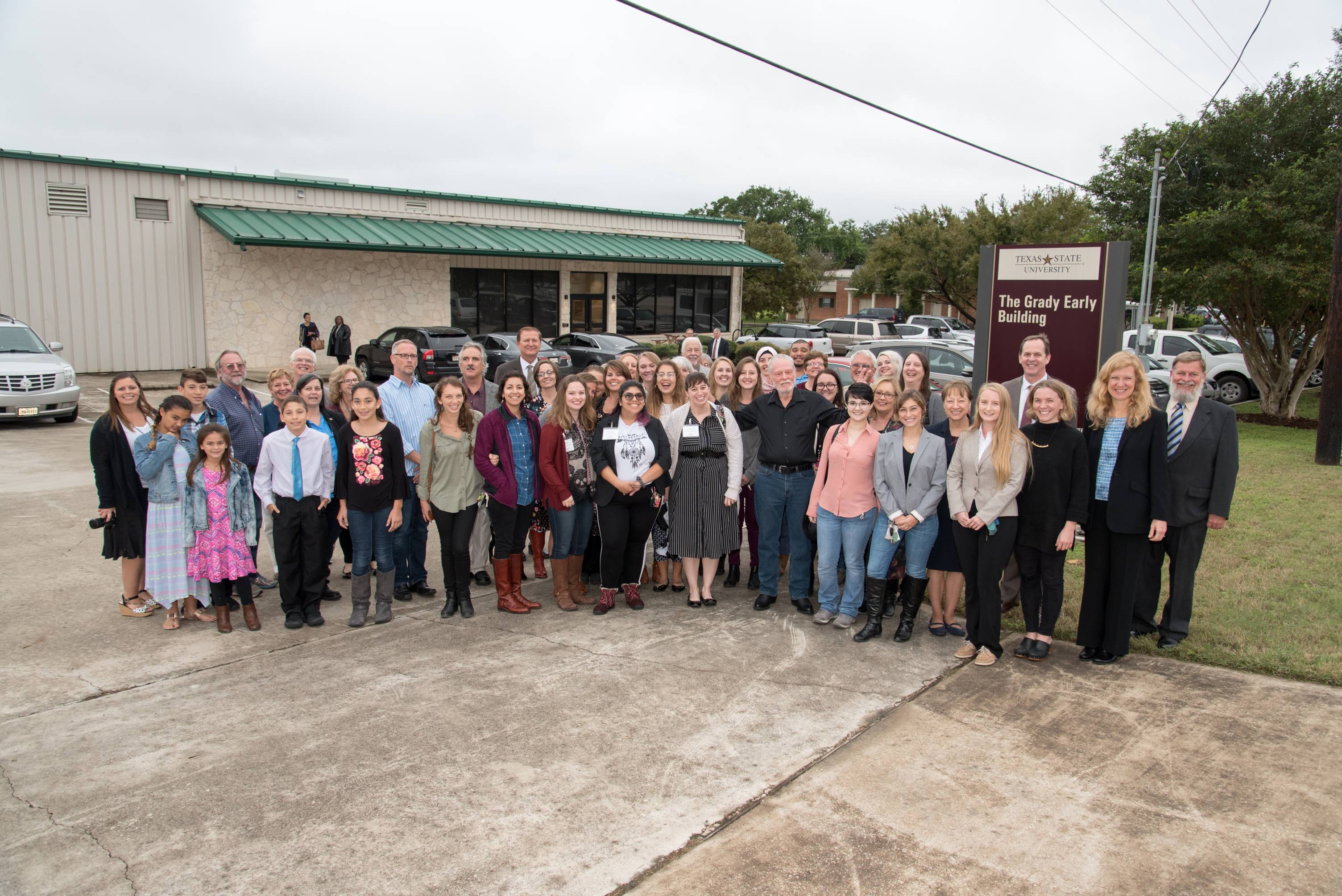Texas State dedicates Grady Early Building for forensic anthropology
Jayme Blaschke | October 19, 2018

Texas State University dedicated the Grady Early Building with a ribbon-cutting October 19.
The $2.1 million project—which began in December 2015—converted an existing 11,700 square foot retail building located at 1921 Old Ranch Road 12 into the new home for the Forensic Anthropology Center at Texas State (FACTS).
Texas State President Denise Trauth, Texas State Provost Gene Bourgeois, Department of Anthropology Chair Beth Erhart and Distinguished Professor Emeritus of Computer Science Grady Early delivered remarks before the ribbon-cutting. Tours of the facility followed.
The facility is named in honor of Early, a Texas State Hero who has donated more than $1 million to the university. In 2008, he established the Grady G. Early Fellowship in Forensic Anthropology, which was the first graduate fellowship endowment in the Department of Anthropology. The endowment provides stipends for several graduate students each year to conduct research at Texas State’s Forensic Research Facility at the Freeman Center. In 2011, Early established the Grady Early Research Endowment in Forensic Anthropology, which now totals $1.6 million.
The Grady Early Building houses the Grady Early Forensic Anthropology Laboratory (GEFARL), meeting rooms, classrooms and FACTS offices. The GEFARL is fully equipped for 3D imaging, histomorphometry and osteometry. Osteological research, consulting and cultural resource assessment are also conducted at the GEFARL.
GEFARL is a secure research laboratory where FACTS faculty, graduate students and visiting experts can conduct skeletal research. The work area can expand and contract as new projects come on board and old projects are completed. The Texas State University Donated Skeletal Collection (TSUDSC) is housed in GEFARL, which currently includes 343 body donations. The skeletons of these donated remains are stored in perpetuity as the TSUDSC. The facility also holds 183 sets of forensic skeletal remains from individuals that died crossing the Texas border associated with the Operation Identification project (OpID). For legal purposes, these skeletal remains must be stored in a secure location while they await identification.
In addition to courses attended by forensic anthropology students, the new classroom space will accommodate approximately 40 lectures per year by FACTS for local schools, colleges and interest groups. The classrooms will also provide an ideal venue for the approximately 15 workshops FACTS conducts for law enforcement annually, including forensic facial reconstruction, forensic methods and human osteology. Currently, these workshops are held at an off-site location.

-
Click to activate full screen -
Click to activate full screen -
Click to activate full screen -
Click to activate full screen -
Click to activate full screen -
Click to activate full screen -
Click to activate full screen -
Click to activate full screen -
Click to activate full screen -
Click to activate full screen -
Click to activate full screen -
Click to activate full screen -
Click to activate full screen -
Click to activate full screen -
Click to activate full screen -
Click to activate full screen -
Click to activate full screen
Share this article
For more information, contact University Communications:Jayme Blaschke, 512-245-2555 Sandy Pantlik, 512-245-2922 |